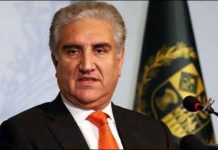
Pakistan has welcomed the recent Award by the Court of Arbitration regarding the General Interpretation of the Indus Waters Treaty (IWT). The decision, announced on August 8 and published on the court’s website on August 11, outlines the criteria for India’s construction of new run-of-river hydropower projects on the Western Rivers—Chenab, Jhelum, and Indus. The Foreign Office described the ruling as an important step toward ensuring fair implementation of the treaty and safeguarding Pakistan’s water rights.
According to the Foreign Ministry, the Award reinforces Pakistan’s longstanding position on the interpretation of key provisions of the IWT. It comes at a critical time following India’s recent announcement to suspend the treaty’s operation and its earlier refusal to participate in the Court of Arbitration’s proceedings. Officials believe the ruling sends a strong message about the binding nature of international agreements and the need for compliance.
The Foreign Office spokesperson stated that the decision holds particular significance given India’s unilateral actions in recent months. He emphasised that the treaty, signed in 1960, has played a vital role in maintaining water-sharing arrangements between the two countries. Any violation, he warned, could set a dangerous precedent for regional stability and international water agreements.
Pakistan reaffirmed its full commitment to implementing the Indus Waters Treaty in both letter and spirit. The government urged India to restore normal treaty operations without delay and to comply fully with the Court of Arbitration’s ruling. Officials stressed that cooperation and respect for the agreed framework are essential for avoiding disputes and ensuring sustainable use of shared water resources.
The ruling is expected to influence the design and construction of future hydropower projects by India on the Western Rivers. Experts believe it could serve as a reference point for resolving similar disputes in the future. Pakistan views the outcome as a diplomatic success and a reaffirmation of its efforts to uphold international law through peaceful and legal channels.








